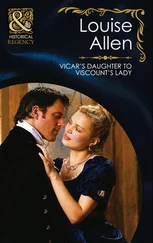Louis Barbé - Viscount Dundee
Здесь есть возможность читать онлайн «Louis Barbé - Viscount Dundee» — ознакомительный отрывок электронной книги совершенно бесплатно, а после прочтения отрывка купить полную версию. В некоторых случаях можно слушать аудио, скачать через торрент в формате fb2 и присутствует краткое содержание. Жанр: foreign_antique, foreign_prose, на английском языке. Описание произведения, (предисловие) а так же отзывы посетителей доступны на портале библиотеки ЛибКат.
- Название:Viscount Dundee
- Автор:
- Жанр:
- Год:неизвестен
- ISBN:нет данных
- Рейтинг книги:3 / 5. Голосов: 1
-
Избранное:Добавить в избранное
- Отзывы:
-
Ваша оценка:
- 60
- 1
- 2
- 3
- 4
- 5
Viscount Dundee: краткое содержание, описание и аннотация
Предлагаем к чтению аннотацию, описание, краткое содержание или предисловие (зависит от того, что написал сам автор книги «Viscount Dundee»). Если вы не нашли необходимую информацию о книге — напишите в комментариях, мы постараемся отыскать её.
Viscount Dundee — читать онлайн ознакомительный отрывок
Ниже представлен текст книги, разбитый по страницам. Система сохранения места последней прочитанной страницы, позволяет с удобством читать онлайн бесплатно книгу «Viscount Dundee», без необходимости каждый раз заново искать на чём Вы остановились. Поставьте закладку, и сможете в любой момент перейти на страницу, на которой закончили чтение.
Интервал:
Закладка:
‘The Prince, in reward of this service, gave him a Captain’s commission, and promised him the first regiment that should fall in the way; and some years thereafter, there happening a vacancy in one of the Scotch regiments, he stood candidate for it, not only upon the assurance of that promise, but also of the letters he procured from King Charles and the Duke of York, recommending him to the Prince, in very strong terms. But, notwithstanding of all this, the Prince preferred Mr Collier, a son of the Earl of Portmore, to the regiment. The Prince then resided at his Palace of the Loo; and Captain Grahame, who was absent while this intrigue was carrying on, chanceing to meet Mr Collier in the Palace Court, expostulated the matter in very harsh terms, and gave him some blows with his cane.
‘The Prince either saw or was soon informed of what passed, and ordering Captain Grahame, who had been seized by the officer of the guards, to be brought before him, he asked him how he dared to strick any person within the verge of his Palace? The Captain answered, that he was indeed in the wrong, since it was more his Highness his business to have resented that quarrel than his; because Mr Collier had less injured him in disappointing him of the regiment, than he had done his Highness in making him breck his word. Then replyed the Prince, in an angry tone, “I make yow full reparation, for I bestow on yow what is more valuable than a regiment, when I give yow your right arm!” The Captain subjoyned, that since his Highness had the goodness to give him his liberty, he resolved to employ himself elsewhere, for he would not serve a Prince longer that had brock his word.
‘The Captain having thus thrown up his commission was preparing in haste for his voyage, when a messenger arrived from the Prince with two hundred guineas for the horse on which he had saved his life. The Captain sent the horse but ordered the gold to be distributed among the grooms of the Prince’s stables. It is said, however, that his Highness had the generosity to wryte to the King and the Duke recommending him as a fine gentleman, and a brave officer, fitt for any office, civil or military.’
In the “Life of Lieutenant-General Hugh Mackay,” the account given is more summary: ‘About this time,’ it is said, ‘the lieutenant-colonelcy of one of the regiments, forming the Scottish brigade, falling vacant, two candidates started for the appointment, both excellent officers, but men of characters widely different. These were Graham of Claverhouse, then an officer in the Prince’s service, afterwards notorious for his unrelenting cruelties to the Covenanters in the West of Scotland, and Mackay, characterised by Bishop Burnet, as the most pious military man he ever knew. The Prince preferred Mackay, which gave such mortal offence to his rival, that he instantly quitted the service and returned to Scotland, burning with resentment against the authors of his disappointment.’
Neither of these two narratives is contemporary. But the more circumstantial embodies the Jacobite legend current in the early years of the eighteenth century, whilst the briefer is founded on the tradition preserved in the family of Claverhouse’s Whig opponent. The one point on which they both agree may therefore be accepted with some confidence; and it seems plausible to ascribe Captain Graham’s withdrawal from the Dutch service to the dissatisfaction which he felt at the inadequate recognition of his claims to promotion.
Claverhouse experienced no difficulty in obtaining employment under his own sovereign. Two letters bearing on the subject have been preserved. They are both written by his relative, the Marquis of Montrose; one of them is addressed to him, the other to the Laird of Monorgan, who was also a Graham. The former is as follows: —
‘Sir, – You cannot imagine how overjoyed I should be, to have any employment at my disposal that were worthy of your acceptance; nor how much I am ashamed to offer you anything so far below your merit as that of being my Lieutenant; though I be fully persuaded that it will be a step to a much more considerable employment, and will give you occasion to confirm the Duke in the just and good opinion which I do assure you he has of you; he being a person that judges not of people’s worth by the rank they are in.
‘I do not know, after all this, in what terms, nor with what confidence, I can express my desire to have you accept this mean and inconsiderable offer; whether by endeavouring to magnify it all I can, and telling you, that it is the first troop of the Duke of York’s regiment; that I am to raise it in Scotland; and that I pretend that none but gentlemen should ride in it; or, by telling you that I am promised to be very quickly advanced, and that you shall either succeed to me, or share with me in my advancement. I can say no more, but that you will oblige me in it beyond expression.
‘I do not expect any answer to this while I am here; for I do resolve to be in Edinburgh against the first or second day of the next month; where, if you be not already, I earnestly entreat you would be pleased to meet me. – Sir, Your most affectionate cousin and servant,
'London, February 19th [1677-8]. 'Montrose. '
From this letter, it has been assumed that Claverhouse had previously made application to his kinsman and titular chief. There can, indeed, hardly be a doubt that it is a reply to a previous request. On the other hand, however, the second letter, written on the same day, does not altogether bear out this view. It was thus: —
‘Sir, – I hope now to be able, within a week or ten days, to give you an account, by word of mouth, of my resolutions, and the reasons I have for accepting a troop in the Duke of York’s regiment of horse; so I shall forbear troubling you with a long letter; only I must tell you that I have all along met with a great deal of favour from his Royal Highness, and that he has assured me that this shall be but a step to a more considerable employment.
‘He has a very good opinion of Claverhouse, and he bid me endeavour by all means to get him for my Lieutenant. Therefore, I most earnestly beg that you would be pleased to represent to him the advantages he may have by being near the Duke, and by making himself better known to him. And withal assure him from me, that, if he will embrace this offer, he shall also share with me in my advancement and better fortune. I need not use many words to show you the disparity that is betwixt serving under me and anybody else, though of greater family, he being of my house, and descended of my family.
‘You may say more to this purpose than is fit for me to do. I shall say no more but that by this you will infinitely oblige. – Sir, Your most affectionate cousin and servant,
'London, February 19th [1677-8]. 'Montrose. '
It is not necessary to look upon this, with Napier, as ‘conclusive against the conjecture that Claverhouse had applied for this service,’ and as affording proof that the commission was spontaneously offered him in recognition of his military abilities. It is more plausible in itself, and more in accordance with the purport of both letters, to believe that Claverhouse had solicited employment from the Duke of York, with whom a recommendation from the Prince of Orange, who had lately become his son-in-law, was likely to possess considerable influence; that James had referred the applicant to the young Marquis, who was then raising a troop for the Duke’s regiment of horse-guards; and that he had, at the same time urged Montrose to secure the services of an officer so brave and so able as Claverhouse had already shown himself to be.
It is not clear whether Claverhouse was really called upon to do duty as a mere subaltern. If so, it was but for a few months. As early as the 21st of November 1678, the Marquis of Montrose superseded the Marquis of Athole as commander of the Royal Horse Guards in Scotland; and the opportunity thus afforded of fulfilling the promise recently made to his kinsman was not neglected. Claverhouse was at once promoted to the vacant post, and thus began that part of his career which was to make him so prominent in the history of his country.
Читать дальшеИнтервал:
Закладка:
Похожие книги на «Viscount Dundee»
Представляем Вашему вниманию похожие книги на «Viscount Dundee» списком для выбора. Мы отобрали схожую по названию и смыслу литературу в надежде предоставить читателям больше вариантов отыскать новые, интересные, ещё непрочитанные произведения.
Обсуждение, отзывы о книге «Viscount Dundee» и просто собственные мнения читателей. Оставьте ваши комментарии, напишите, что Вы думаете о произведении, его смысле или главных героях. Укажите что конкретно понравилось, а что нет, и почему Вы так считаете.












